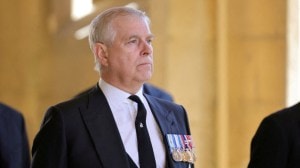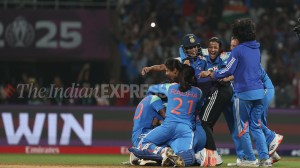Today in Politics: Debate on Constitution begins in Parliament; Modi, Kharge, other key leaders will address the Lok Sabha
With the Opposition making "save the Constitution" its key pitches in the Lok Sabha polls, and the BJP also admitting it might have hurt its prospects, how the discussion will unfold will be carefully watched.

It is a packed day in Parliament Friday. The Lok Sabha will begin a two-day debate on the Constitution to mark the beginning of the 75th year of its adoption in the country.
Defence Minister Rajnath Singh will initiate the debate on the Constitution in the Lok Sabha, while Union Home Minister Amit Shah is expected to initiate a similar debate in the Rajya Sabha, said government sources.
As per the listed agenda of the Lok Sabha, there will be a “Special discussion on the 75th anniversary of adoption of the Constitution of India”. The discussions will begin after the Question Hour, which is also listed in the agenda of the Lower house. Ahead of the two-day debate, Prime Minister Modi held a strategy meet, which was attended among others by Shah and Singh besides BJP president J P Nadda.
The opposition Congress also held a strategy meeting at the party headquarters here which was attended by party president Mallikarjun Kharge and former party chief Rahul Gandhi besides other senior leaders, including K C Venugopal and Jairam Ramesh.
IN CONTEXT: On November 26, 1949, the Constituent Assembly adopted the Constitution of India, and it came into effect on January 26, 1950.
While January 26 is celebrated as Republic Day, since 2015, November 26 is annually observed as the Constitution Day of India, or Samvidhan Divas. The Constituent Assembly, the body meant to draft the Constitution of India, held its first session on December 9, 1946, attended by 207 members. Initially, the assembly had 389 members, but after Independence and the Partition of India, the strength was reduced to 299.
The assembly took over three years to draft the constitution, spending over 114 days considering the content of the draft alone. A range of sources were consulted for the draft, including the Constitutions of other countries, and suitable amendments were made to adapt the provisions to what India needed at the time.
Another major source was the Government of India Act of 1935. It introduced bicameralism — upper and lower Houses — at the Centre and in six provinces along with direct elections to these chambers. At the time, it was one of the longest pieces of legislation passed in the British Parliament. On December 13, 1946, Nehru moved the “Objectives Resolution” that was later adopted as the Preamble on January 22, 1947, to encapsulate the basic philosophy of the Constitution. With the Opposition making ‘save the Constitution” its key pitches in the Lok Sabha polls, and the BJP also admitting it might have hurt its prospects, how the discussion will unfold will be carefully watched.
In the Rajya Sabha, two interesting Private Members Bill are on the cards/ MP Mausam B Noor, a TMC Rajya Sabha MP, will move for leave to introduce a Bill to protect the rights of employees in relation to the use and implementation of artificial intelligence in workplaces and regulate the use of and ensure transparency in the implementation of artificial intelligence technologies at workplaces and for matters connected therewith or incidental thereto. ALSO to introduce the Bill. She is also set to move for leave to introduce a Bill to prevent and criminalize the creation, dissemination, and use of deepfake content without consent or without digital watermark.
IN CONTEXT: Private Members’ Bills are legislative proposals introduced by a member of the House who is not a minister (the Bills introduced by them are Government Bills). In the Lok Sabha, the House allots the last two-and-a-half hours of business every Friday for transaction of private members’ business, which includes Private Members’ Bills and Private Members’ Resolutions. In the Rajya Sabha, two-and-a-half hours every alternate Friday during a Session are generally allotted for the same.
The Rajya Sabha Secretariat handbook says the importance of Private Members’ Bills “lies in the fact that they enable legislators to draw attention to issues which might not be represented in government Bills or to highlight the issues and gaps in the existing legal framework requiring legislative intervention”.



- 01
- 02
- 03
- 04
- 05




























